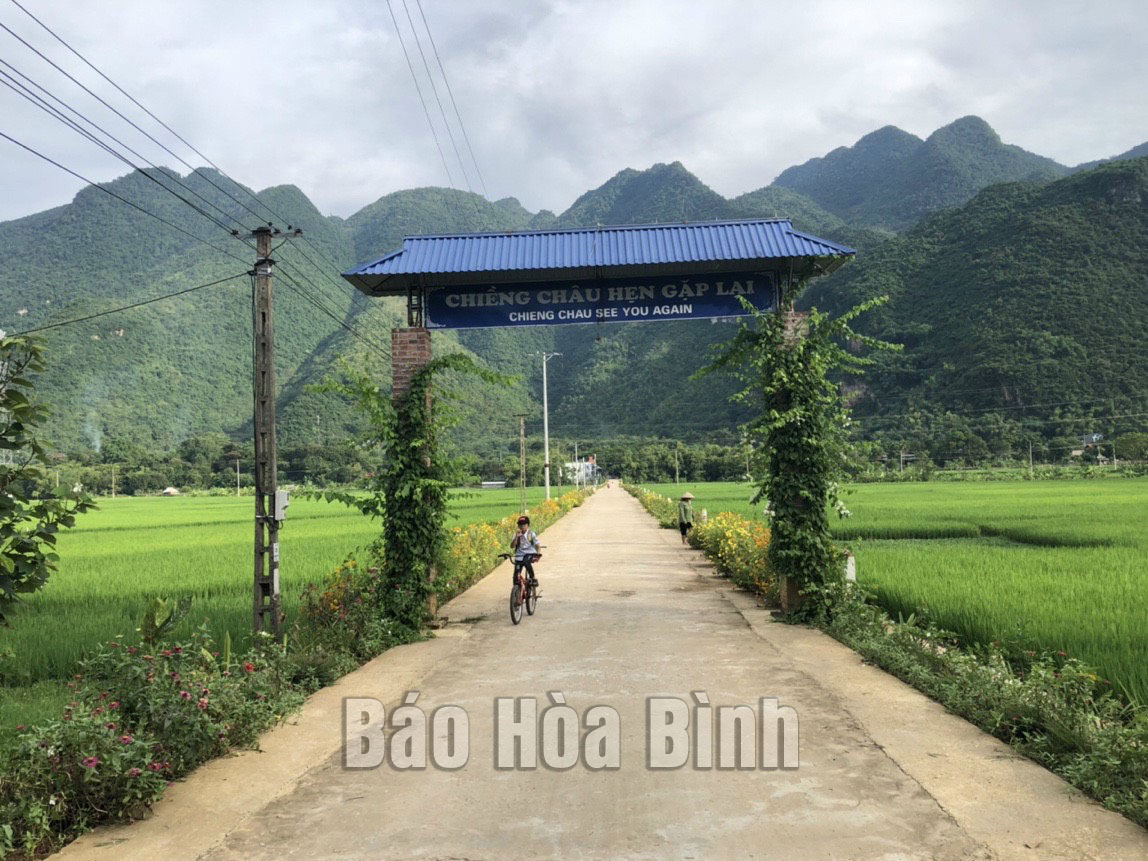(HBO) – Mai Chau district has exerted great efforts to develop its socio-economic infrastructure and connections between rural and urban areas, while mobilising resources to upgrade transport to tourist destinations with the aim of becoming a major tourism destination in Hoa Binh.
Currently, all 15 communes of Mai Chau have completed
the criterion on transport system for new-style rural area.
To date, seven communes of Mai Chau have been recognised as new-style rural
areas, include two becoming advanced new-style rural areas. At the same time,
one commune is expected to be recognised later this year, and the remaining
communes have completed between 10 and 14 criteria of the programme.
The district People’s Committee has directed the mobilisation of all resources
for the upgrade of local transport infrastructure.
So far this year, the locality has mobilised more than 184 billion VND (7.39
million USD) for the work. As a result, all 15 communes have had roads allowing
automobile to reach the central areas, while over 83% of local roads have been
concretised.
Tran Manh Tan, head of the district Agriculture and Rural Development Office
said that as resources needs for infrastructure development is huge while local
budget is limited, the locality has tried to integrate the work into the
implementation of many other programmes and projects.
In new rural area construction,all 15 communes in the district have met
the criteria on irrigation, power supply and rural commercial infrastructure.
Meanwhile, 14 out of 15 communes have met the criterion on health care, 8 out
of 15 communes have met the criterion for schools and 9 out of 15 communes have
met the criterion for cultural facilities.
According to Tan, in the coming time, the district will continue to effectively
implement mechanisms and policies to attract investment in rural infrastructure
development, while working to increase income for rural residents in a
sustainable manner./.



